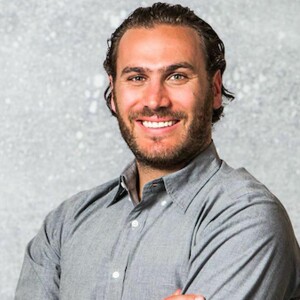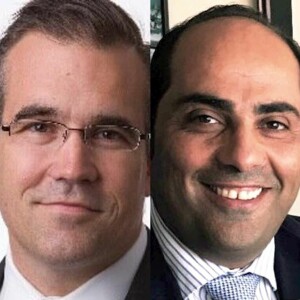Episodes

Thursday Feb 24, 2022
Mapping the Human Proteome
Thursday Feb 24, 2022
Thursday Feb 24, 2022
Though it’s been nearly 20 years since the Human Genome Project provided a blueprint for human biology, it still left much work to be done to understand health and disease at a molecular level. The Sweden-based Human Protein Atlas, which is seeking to map human proteins in cells, tissues, and organs, recently published significant updates to the open-access resource. We spoke to Mathias Uhlén, director of the Human Protein Atlas, about how the atlas is changing the diagnosis and treatment of disease, what’s known about the human proteome to date, and how this understanding will be essential to brining about an era of precision medicine.

Thursday Feb 17, 2022
Gene Therapy Provides Hope to Hemophilia B Patients
Thursday Feb 17, 2022
Thursday Feb 17, 2022
In 2020, CSL Behring entered into a global license and commercialization agreement with UniQure for the company’s experimental hemophilia B gene therapy. The expected, one-and-done treatment carries the potential to free people with the genetic bleeding disease from reliance on regular infusions of clotting factor IX for which they are deficient. We spoke to Steve Pascoe, senior vice president and head of therapeutic areas and development strategy for R&D at CSL about hemophilia B, how the gene therapy fits into CSL’s broader therapeutic offerings, and the encouraging results from the recent pivotal study.

Thursday Feb 10, 2022
Making Data-Driven Medicine a Reality
Thursday Feb 10, 2022
Thursday Feb 10, 2022
The promise of data-driven medicine is that it can accelerate the diagnosis of disease, provide patients with the most effective treatments for their particular conditions, and improve drug development. Sophia Genetics is drawing on extensive information from its global, data-sharing network to make data-driven medicine a reality. We spoke to Emily Paul, product director of platform for Sophia Genetics, about Sophia’s vision for data-driven medicine, the challenges of managing vast amounts of data and turning it into actionable information, and how its changing patient care today.

Thursday Feb 03, 2022
A Neuroscientist Turned Venture Investor Discusses TechBio Investing
Thursday Feb 03, 2022
Thursday Feb 03, 2022
The growing convergence of information technology and biotechnology are creating a compelling new group of companies that live in both these worlds at once. Lux Capital, which has long invested in both sectors, has a growing portfolio of these emerging TechBio companies. We spoke to Adam Goulburn, partner at Lux Capital, about his investment process, how he tempers the promise of technology with management realities and market timelines, and the changing landscape for venture investing.

Thursday Jan 27, 2022
A Nonprofit Seeks to Make Cell and Gene Therapies Affordable Worldwide
Thursday Jan 27, 2022
Thursday Jan 27, 2022
Cell and gene therapies are among the most promising approaches to treating diseases because they carry the potential to cure chronic and progressive conditions. The problem is that the high cost of producing these therapies, which often need to be tailored to individual patients, limits access to them, particularly in low- and middle-income countries. Caring Cross is seeking to change that through its nonprofit model that focuses on enabling hospitals and health systems to manufacture advanced therapies locally and deliver them in a cost-effective manner. We spoke to Boro Dropulić, co-founder of Caring Cross, about how the nonprofit is seeking to lower the cost of these therapies, how it operates, and why its initially focused on HIV and sickle cell disease.

Thursday Jan 20, 2022
Disposing Toxic Proteins to Treat Neurodegenerative Diseases
Thursday Jan 20, 2022
Thursday Jan 20, 2022
KeifeRx is developing a pipeline of orally delivered tyrosine kinase inhibitors to treat neurodegenerative diseases. It has a portfolio of these drugs that it has optimized to penetrate the brain, clear damaged cells, and treat these conditions through the bulk disposal of disease-causing toxic proteins. It believes its approach offers the potential to significantly improve on current treatments, which it calls primarily palliative because they fail to adequately eliminate the toxic proteins at the root of these deadly diseases. We spoke to KeifeRx CEO Chris Hoyt and co-founder and head of the company’s scientific advisory board Charbel Moussa, about how it has repurposed and optimized a cancer therapy to treat neurodegenerative diseases, and why it may have broad applications across these conditions.

Thursday Jan 13, 2022
Repurposing a Drug for Parasitic Infections as a Targeted GI Therapy
Thursday Jan 13, 2022
Thursday Jan 13, 2022
When AzurRX BioPharma merged with First Wave Bio last year it renamed itself First Wave BioPharma. The company is developing targeted, non-systemic therapies for gastrointestinal diseases with its lead candidate niclosamide, an approved therapy to treat tapeworms that it believes has anti-viral and anti-inflammatory properties. The company is developing niclosamide in six GI-indications including COVID-19 related GI disease, Immune Checkpoint Inhibitor-associated colitis and diarrhea in advanced oncology patients, ulcerative proctitis/ proctosigmoiditis, ulcerative colitis, and Crohn’s disease. We spoke to James Sapirstein, CEO of First Wave BioPharma, about the merger, niclosamide, and its potential to treat a range of gastrointestinal disorders.

Thursday Jan 06, 2022
Targeting Chronic, Low-Grade Inflammation to Address Diseases of Aging
Thursday Jan 06, 2022
Thursday Jan 06, 2022
HCW Biologics is developing immunotherapies to target chronic inflammation associated with aging. The company’s therapeutics are designed to disrupt the link between chronic, low-grade inflammation and age-related disorders. The company believes this type of inflammation is a significant contributing factor to cancer and several chronic conditions, including cardiovascular disease, diabetes, neurodegenerative disease, and autoimmune disease. We spoke to Hing Wong, CEO of HCW Biologics, about the link between chronic inflammation and diseases of aging, the company’s immunotherapies, and its platform for developing therapies that target this unwanted inflammation to treat cancer and other diseases.

Daniel Levine
Daniel Levine is an award-winning business journalist who has reported on the life sciences, economic development, and business policy issues throughout his career. He is founder and principal of Levine Media Group, host of The Bio Report and RARECast podcasts, a senior fellow at the Center for Medicine in the Public Interest, and author of Global Genes’ annual NEXT report on emerging trends in the world of rare disease. From 2011 to 2014, he served as the lead editor and writer of Burrill & Company’s acclaimed annual book on the biotech industry. His work has appeared in numerous national publications including The New York Times, The Industry Standard, and TheStreet.com.

